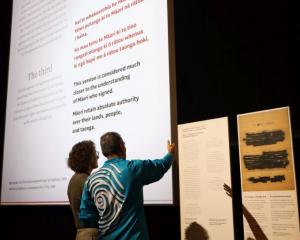
"It's been on the statute books for eight years now," Little told the New Zealand Herald. "Our serious offending rate is rising, our prison population is rising. Throwing people into prison for longer and longer just isn't working."
However, repealing it was not in the Government's 100-day plan.
"It will be some time next year, I imagine. It's a silly law anyway, but I want to make sure when we do get rid of it, we can say, 'Here is our plan to reduce serious offending rates'."
The three strikes law was passed in 2010 and applies to 40 serious sexual or violent offences.
The first-strike conviction results in a normal sentence and a warning, the second in a sentence without parole and a final warning, and the third in the maximum sentence for that offence without parole - though parole eligibility can be granted if a judge deems the sentence manifestly unjust.
The latest Ministry of Justice figures up to July 2017 show that 8503 offenders were on a first warning, 216 were on a final warning, and two have been convicted of a third strike.
Family First said repealing the law would put the public in greater danger, and former Act MP David Garrett, who was the architect of the bill, said repeat violent offenders deserve longer sentences.
"Each of those 216 guys on a final strike are dangerous, repeat, violent offenders who belong in jail, and they are doing more time than they were before.
"What's the wrong that needs to be righted? Andrew Little will have no examples of where the legislation has resulted in some rank injustice."
Garrett said he was "comfortable" with the judge's decision to mitigate the third strike sentence for Raven Casey Campbell, who grabbed the buttocks of a female corrections officer while in prison for his second strike offence. He was sentenced to the maximum seven-year sentence for indecent assault, but the judge granted parole eligibility after serving one third of his sentence.
In March this year Kingi Ratima also had his sentence for a third strike offence mitigated. He is eligible for parole after serving half of his 10-year sentence for robbery. He had 105 previous convictions for mostly driving and dishonesty offences, and had pleaded guilty after stealing a man's cell phone.
Little said the cases showed that judges were avoiding using the law.
AUT law professor Warren Brookbanks has looked at trends for the crimes that make up about 90 per cent of the sentences under the three strikes law - sexual assault, serious assault, robbery and aggravated robbery. He concluded that the law "appears to have had little, if any, effect" on those crimes rates.
Little said the law could result in lengthy sentences for minor offences, citing the case of a thief on two strikes.
"If he'd got a third strike, he'd be off to prison for 14 years for nicking a skateboard or a baseball cap, which is ridiculous. He needs to get his problems fixed, not spend 14 years in prison at a cost of $100,000 a year."
He said his focus will be on the drivers of crime and helping prisoners who can be rehabilitated.
"We've had 30 years of ratcheting up the harshness of sentencing. But just look at the figures. Whatever we're doing, it's not working."











